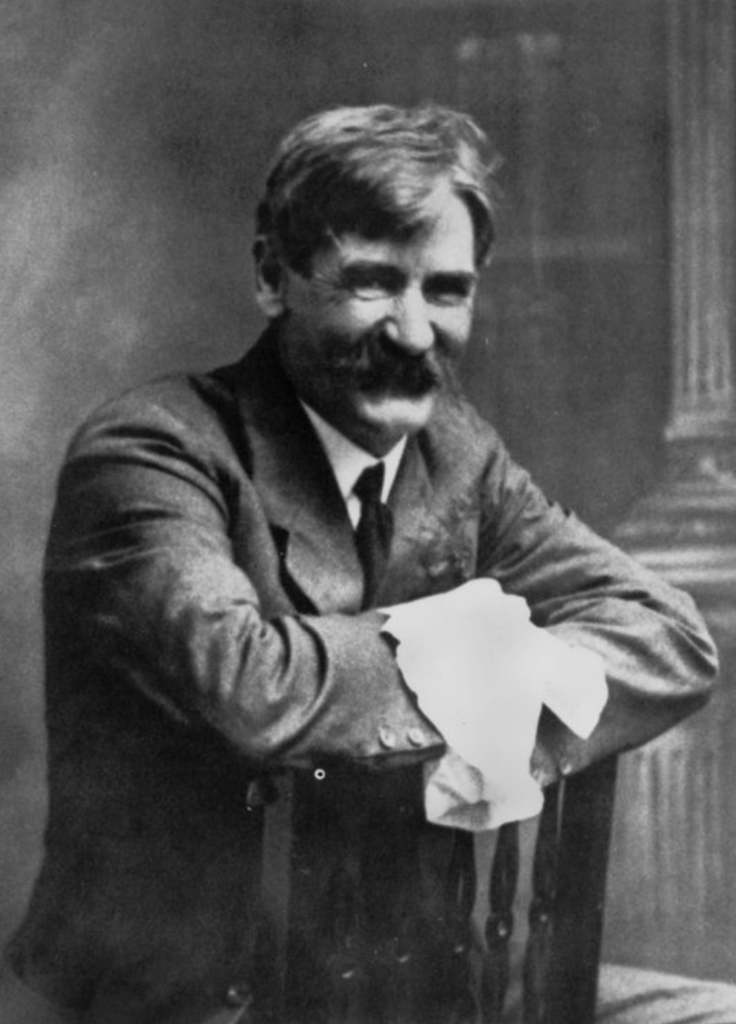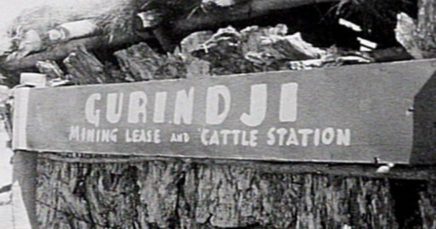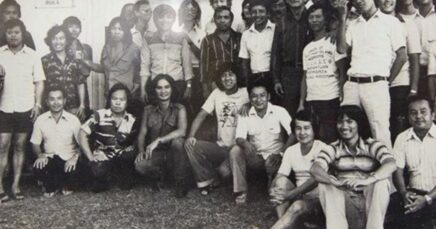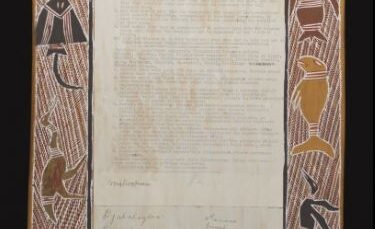
Today we are commemorating Henry Lawson, who in the late nineteenth century was a superstar of working-class poetry.
Yes, that’s right – a superstar poet.
Lawson was born in New South Wales in 1867 and spent years on a selection, a small farm, where life was rough and precarious.
He didn’t get chance to go to school until he was nine, and after just a few years of interrupted learning he left to work as a builder.

Eventually he found his way to Sydney, and then to Melbourne, where he received some treatment for the deafness that had plagued him.
Life was tough for Henry, made up of short-term jobs and a sense of alienation.
He found solace in his writing, with his poems which were often of a republican bent appearing in the Bulletin, and his journalism in a variety of newspapers.
He wrote of the experiences of the workers and the dispossessed, the ‘Faces in the Street’ as one of his poems had it:
And cause I have to sorrow, in a land so young and fair,
To see upon those faces stamped the marks of Want and Care;
I look in vain for traces of the fresh and fair and sweet,
In sallow, sunken faces that are drifting through the street —
Drifting on, drifting on,
To the scrape of restless feet;
I can sorrow for the owners of the faces in the street.
He increasingly turned his hands to short stories that ran in union newspapers, such as his famous work “The union buries its dead”.
In this tale, an unknown man is found dead in a small outback town. Though nobody there knew him, when they discovered he was a union member, the town’s union members turned out in a funeral procession.
Though Lawson’s fame grew, his life remained unsettled, he moved often, and he struggled with alcoholism.

His final years were sad ones, and Lawson expressed many opinions that are very far from our own today.
But he gave an important and artful voice to the experiences of working people at a significant juncture of our history.
His most famous contribution was the poem, “Freedom on the Wallaby” published in the Worker newspaper in 1891 in response to violence against striking shearers.
It ends:
But now that we have made the land
A garden full of promise,
Old Greed must crook ‘is dirty hand
And come ter take it from us.
So we must fly a rebel flag,
As others did before us,
And we must sing a rebel song
And join in rebel chorus.
We’ll make the tyrants feel the sting
O’ those that they would throttle;
They needn’t say the fault is ours
If blood should stain the wattle!“
Today we remember Henry Lawson, and the verses he added to our rebel chorus.



